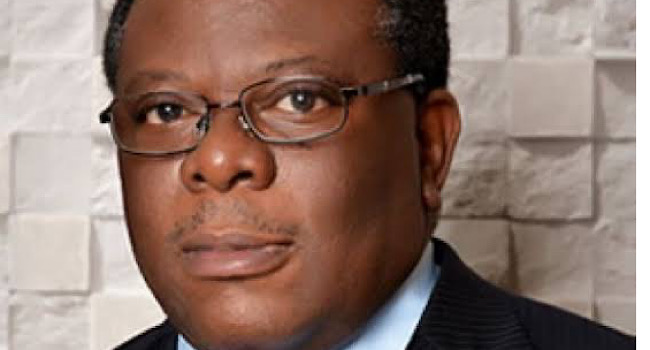Business
NESG suggests ways to achieve stable, sustainable economic growth

The Nigeria Economic Summit Group (NESG) has advised the Federal Government to prioritise certain policy decisions that will enhance and sustain economic growth.
Mr Laoye Jaiyeola, the Chief Executive Officer of the group gave the advice in an interview on Monday, February 22, in Abuja.
Jaiyeola was reacting to the recent pronouncement that Nigeria has exited its second economic recession.
Jaiyeola, who is also a past President of Chartered Institute of Bankers of Nigeria (CIBN) said setting such necessary priorities would ensure inclusive economic growth, especially with the challenges posed by COVID-19.
“Our economy was badly affected by COVID-19, but it is a good thing that we have now exited our second economic recession within a spate of five years.
READ ALSO: NESG urges FG to make policies to ensure less dependence on foreign loans
“That is why we are urging the government to give attention to four priorities that are essential for delivering a high, sustainable, and inclusive economic growth,’’ he said.
He cited macroeconomic stability, policy consistency, sectoral reforms, and human capital development as necessary areas that government should prioritise.
“Those four areas need attention.
“First, we have established the fact that government revenue cannot be enough. We need to drive private investment either foreign or local. We need the private sector to make things work.
“For us to have foreign investment come into the country, or for Nigerians to invest their monies here, necessary conditions need to be in place.
“Macroeconomic stability is crucial. We should not be having running inflation, which will imply that we were better off yesterday than we are today.
“If we have stability on the monetary policy side, also on the fiscal policy side, investors will be attracted to invest here,’’ he said.
Jaiyeola also suggested that if the government remained consistent in its policy formulation, the economy would grow faster.
“A clear example is tariffs on vehicles. While the government is encouraging investors to set up vehicle assembly plants here, it is also reducing tariffs on imported vehicles to make the prices cheaper.
“Investors will not come if they see such flip-flop in policies,’’ he said.
He urged the government to concentrate on sectors that have the capacity to positively impact the economy, generate jobs, and lift people out of poverty.
“In the past five years, there are certain sectors that have performed very well; these are key sectors that government should concentrate on.
“A sector like telecoms has been profitable in last five years. The government should be concerned with how to help boost such sectors,’’ Jaiyeola added.
Join the conversation
Support Ripples Nigeria, hold up solutions journalism
Balanced, fearless journalism driven by data comes at huge financial costs.
As a media platform, we hold leadership accountable and will not trade the right to press freedom and free speech for a piece of cake.
If you like what we do, and are ready to uphold solutions journalism, kindly donate to the Ripples Nigeria cause.
Your support would help to ensure that citizens and institutions continue to have free access to credible and reliable information for societal development.
























